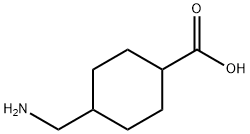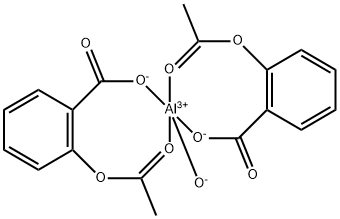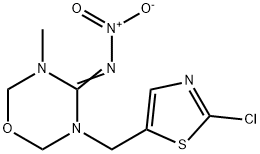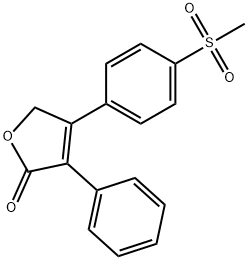Abciximab
- Molecular Weight: 0
- Update Date: 2022-09-13 11:05:29
What is Abciximab?
The Uses of Abciximab
Monoclonal antibody (antithrombotic).
brand name
ReoPro (Lilly).
General Description
Abciximab (ReoPro) is a chimeric Fabfragment monoclonal antibody that can bind to theGPIIa/IIIb receptor of platelets and block the ability offibrinogen to associate with the platelet. This results in lessplatelet aggregation. Abciximab is useful in treating unstableangina and as an adjunct to percutaneous coronaryintervention (PCI). The half-life of abciximab is about30 minutes, whereas its effects when bound to theGPIIa/IIIb may last up to 24 hours. A significant drawbackto using abciximab lies in its cost, which is approximately$1,500 for a single dose.
Pharmacokinetics
For an adult patient, the usual dosing scheme is 0.25 mg/kg as an intravenous bolus given 10 to 60 minutes before percutaneous coronary intervention, followed by the continuous infusion of 0.125 μg/kg/minute for 12 hours to a maximum of 10 μg/kg. Elimination of abciximab is biphasic. The initial phase has a half-life of 10 minutes, whereas the half-life of the second phase is approximately 30 minutes and results from platelet binding. Platelet function returns to normal within 48 hours after infusion, even though abciximab is bound to circulating platelets for approximately 2 weeks。
Clinical Use
Abciximab (ReoPro, chimeric) is an MAb engineered from theglycoprotein IIb/IIIa receptor of human platelets. The preparationis fragmented, containing only the Fab portion of theantibody molecule. This MAb is a chimeric human–mouseimmunoglobulin. The Fab fragments may contain mouse variableheavy- and light-chain regions and human constantheavy- and light-chain regions.
Abciximab is indicated as an adjunct to percutaneoustransluminal coronary angioplasty or atherectomy for theprevention of acute cardiac ischemic complications in patientsat high risk for abrupt closure of a treated coronaryvessel. Abciximab appears to decrease the incidence ofmyocardial infarction.
Abciximab binds to the intact GPIIb/GPIIIa receptor,which is a member of the integrin family of adhesion receptorsand the major platelet-specific receptors involved in aggregation.The antibody prevents platelet aggregation bypreventing the binding of fibrinogen, the von Willebrandfactor, and other adhesion molecules on activated platelets.The inhibition of binding to the surface receptors may be aresult of steric hindrance or conformational effects preventinglarge molecules from approaching the receptor.
Side Effects
Many of the side effects of abciximab are due to its anti-platelet effects which increase the risk of bleeding. The most common type of bleeding due to abciximab is gastrointestinal hemorrhage.Thrombocytopenia is a rare but known serious risk characterized by a severe drop in platelets circulating in the blood. Abciximab induced thrombocytopenia is usually rapid occurring hours after administration but may occur up to 16 days later.Transfusing platelets is the only known treatment for abciximab-induced thrombocytopenia, but this therapy may have limited effectiveness because the drug may bind and inhibit the receptors on the newly transfused platelets.
Safety information for Abciximab
New Products
(S)-3-Aminobutanenitrile hydrochloride 4-Methylphenylacetic acid N-Boc-D-alaninol N-BOC-D/L-ALANINOL Tert-butyl bis(2-chloroethyl)carbamate 3-Morpholino-1-(4-nitrophenyl)-5,6-dihydropyridin- 2(1H)-one Furan-2,5-Dicarboxylic Acid Tropic acid 1-Bromo-3,5-Di-Tert-Butylbenzene S-2-CHLORO PROPIONIC ACID ETHYL ISOCYANOACETATE 2-Bromo-1,3-Bis(Dimethylamino)Trimethinium Hexafluorophosphate 4-IODO BENZOIC ACID 3-NITRO-2-METHYL ANILINE 1-(2,4-DICHLOROPHENYL) ETHANAMINE (2-Hydroxyphenyl)acetonitrile 4-Bromopyrazole 2-(Cyanocyclohexyl)acetic acid 4-methoxy-3,5-dinitropyridine 1-(4-(aminomethyl)benzyl)urea hydrochloride 2-aminopropyl benzoate hydrochloride diethyl 2-(2-((tertbutoxycarbonyl)amino) ethyl)malonate tert-butyl 4- (ureidomethyl)benzylcarbamate Ethyl-2-chloro((4-methoxyphenyl)hydrazono)acetateRelated products of tetrahydrofuran
You may like
-
 2033-24-1 98%View Details
2033-24-1 98%View Details
2033-24-1 -
 42831-50-5 5-METHYLISOXAZOLE-4-CARBOXYLIC ACID 98%View Details
42831-50-5 5-METHYLISOXAZOLE-4-CARBOXYLIC ACID 98%View Details
42831-50-5 -
 1975-50-4 98%View Details
1975-50-4 98%View Details
1975-50-4 -
 2-HYDROXY BENZYL ALCOHOL 98%View Details
2-HYDROXY BENZYL ALCOHOL 98%View Details
90-01-7 -
 2-Chloro-1,3-Bis(Dimethylamino)Trimethinium Hexafluorophosphate 221615-75-4 98%View Details
2-Chloro-1,3-Bis(Dimethylamino)Trimethinium Hexafluorophosphate 221615-75-4 98%View Details
221615-75-4 -
 61397-56-6 CIS BROMO BENZOATE 98%View Details
61397-56-6 CIS BROMO BENZOATE 98%View Details
61397-56-6 -
 14714-50-2 (2-Hydroxyphenyl)acetonitrile 98+View Details
14714-50-2 (2-Hydroxyphenyl)acetonitrile 98+View Details
14714-50-2 -
 118753-70-1 98+View Details
118753-70-1 98+View Details
118753-70-1






